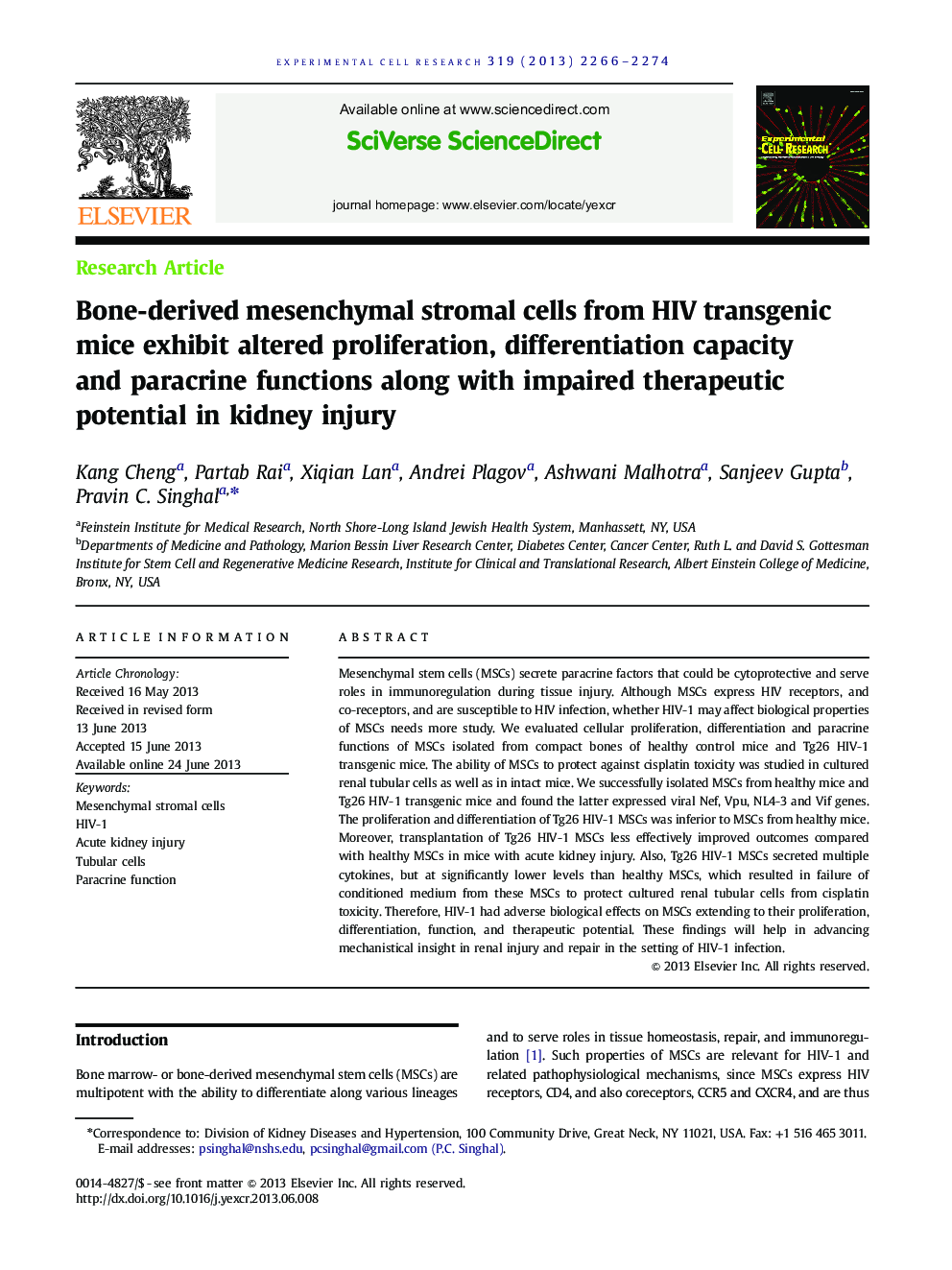| Article ID | Journal | Published Year | Pages | File Type |
|---|---|---|---|---|
| 10904293 | Experimental Cell Research | 2013 | 9 Pages |
Abstract
Mesenchymal stem cells (MSCs) secrete paracrine factors that could be cytoprotective and serve roles in immunoregulation during tissue injury. Although MSCs express HIV receptors, and co-receptors, and are susceptible to HIV infection, whether HIV-1 may affect biological properties of MSCs needs more study. We evaluated cellular proliferation, differentiation and paracrine functions of MSCs isolated from compact bones of healthy control mice and Tg26 HIV-1 transgenic mice. The ability of MSCs to protect against cisplatin toxicity was studied in cultured renal tubular cells as well as in intact mice. We successfully isolated MSCs from healthy mice and Tg26 HIV-1 transgenic mice and found the latter expressed viral Nef, Vpu, NL4-3 and Vif genes. The proliferation and differentiation of Tg26 HIV-1 MSCs was inferior to MSCs from healthy mice. Moreover, transplantation of Tg26 HIV-1 MSCs less effectively improved outcomes compared with healthy MSCs in mice with acute kidney injury. Also, Tg26 HIV-1 MSCs secreted multiple cytokines, but at significantly lower levels than healthy MSCs, which resulted in failure of conditioned medium from these MSCs to protect cultured renal tubular cells from cisplatin toxicity. Therefore, HIV-1 had adverse biological effects on MSCs extending to their proliferation, differentiation, function, and therapeutic potential. These findings will help in advancing mechanistical insight in renal injury and repair in the setting of HIV-1 infection.
Related Topics
Life Sciences
Biochemistry, Genetics and Molecular Biology
Cancer Research
Authors
Kang Cheng, Partab Rai, Xiqian Lan, Andrei Plagov, Ashwani Malhotra, Sanjeev Gupta, Pravin C. Singhal,
